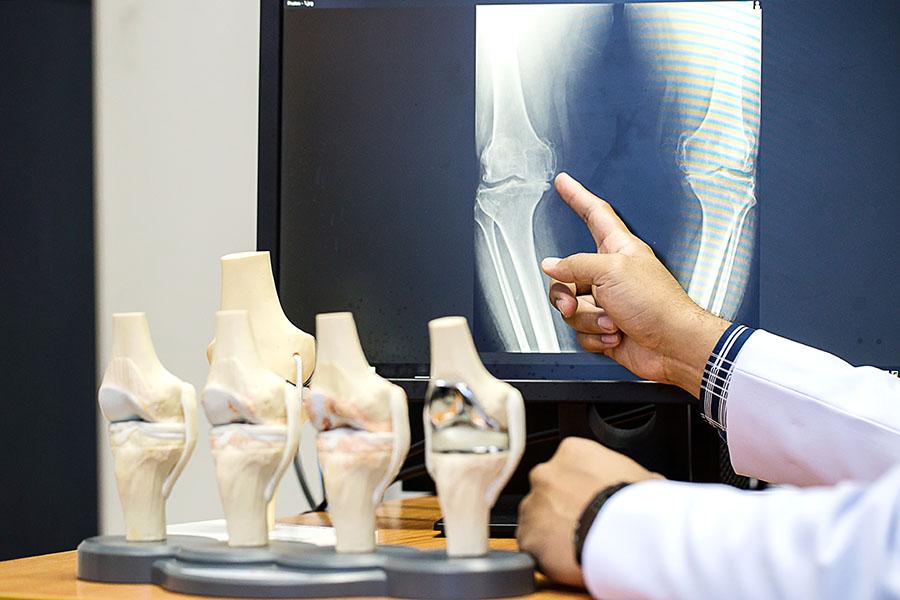Causes
The hip and pelvic girdle serve as the anchor for a large number of muscles, tendons and ligaments that support the hip and provide strength and stability. Muscle tendons attached to the thigh and pelvis control hip movement. Small fluid-filled sacs (bursae) located between bones and tendons decrease friction and allow for smooth movement.
Injuries to the hip can occur acutely — as in a single event of trauma — but injuries to the hip are more commonly a result of overuse, repetitive movements or tightness/imbalance in the muscle that places high stress on a muscle group or tendon.
Symptoms
A few injuries unique to the hip muscles and tendons can cause significant pain and limit your ability to play sports and exercise comfortably. Those injuries and their symptoms include:
Gluteus Medium Syndrome
This condition causes pain in the outer portion of your hip. The gluteus medius muscle moves the hip away from the body and provides stability when walking, running and jumping. Pain and tenderness can occur if this muscle is excessively tight, weak or strained. You may limp and experience pain or weakness when lifting your leg away from your body.
Piriformis Syndrome
With this condition, you experience tightness and irritation of the piriformis muscle, a deep hip rotator. Piriformis syndrome can cause deep pain in the back of the hip and deep in the buttock, and may also cause pain that shoots down the back of the leg — similar to sciatic nerve pain because of the closeness of the muscle and nerve in the hip. You may also have weakness and tightness during hip rotation stretches.
Snapping Hip Syndrome
"Snapping hip" is a term used to describe more than one hip problem. In the presence of tightness and overuse, the tendons that run over bony areas may be painful and “snap” or “roll” over the bone. This can be felt on the outside of the hip because of tightness in the iliotibial, or IT band. This causes a snapping or rolling sensation as the leg is moved forward and back.
IT band snapping can be accompanied by inflammation of the bursa found there. Snapping may also occur in the front of your hip when the hip flexor tendon snaps over the front of the hip as the leg is moved into hip flexion and extension with the knee bent.
Diagnosis
Tightness, strains and injuries of the hip may have similar pain patterns. Evaluation by a Temple sports medicine specialist and in some cases imaging — such as X-rays, ultrasound or MRI — is necessary to identify and distinguish the cause of hip pain and affected structures.
Treatment Options
Treatment for hip pain related to overuse or injuries is based on the injury and your activity level.
Non-surgical options include:
- Activity modification
- Physical therapy
- Anti-inflammatories
- Acupuncture
- Dry needling
Alternative treatments include:
- Injections
- Autologous conditioned plasma (ACP) or platelet rich plasma (PRP) — which promote a healing environment and reduce pain
- Surgery may address the injured muscle/tendon if other treatments have not worked
See a Temple orthopaedics and sports medicine physician today. Request an appointment or call 800-TEMPLE-MED (800-836-7536).

